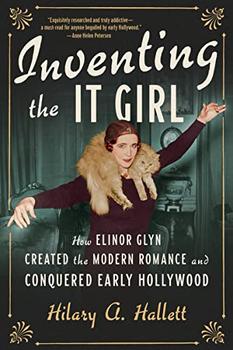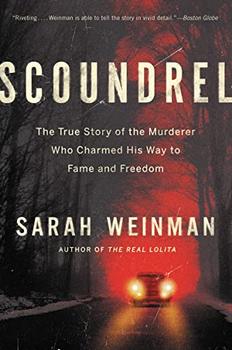Summary | Excerpt | Reviews | Beyond the book | Read-Alikes | Genres & Themes | Author Bio

Terror, Mystery, the Birth of Hollywood, and the Crime of the Century
by Howard BlumSimultaneously offering the absorbing reading experience of a can’t-put-it-down thriller and the perception-altering resonance of a story whose reverberations continue even today, American Lightning is a masterpiece of narrative nonfiction.
It was an explosion that reverberated across the country - and into the very heart of early-twentieth-century America. On the morning of October 1, 1910, the walls of the Los Angeles Times Building buckled as a thunderous detonation sent men, machinery, and mortar rocketing into the night air. When at last the wreckage had been sifted and the hospital triage units consulted, twenty-one people were declared dead and dozens more injured. But as it turned out, this was just a prelude to the devastation that was to come.
In American Lightning, acclaimed author Howard Blum masterfully evokes the incredible circumstances that led to the original "crime of the century" - and an aftermath more dramatic than even the crime itself.
With smoke still wafting up from the charred ruins, the city’s mayor reacts with undisguised excitement when he learns of the arrival, only that morning, of America’s greatest detective, William J. Burns, a former Secret Service man who has been likened to Sherlock Holmes. Surely Burns, already world famous for cracking unsolvable crimes and for his elaborate disguises, can run the perpetrators to ground.
Through the work of many months, snowbound stakeouts, and brilliant forensic sleuthing, the great investigator finally identifies the men he believes are responsible for so much destruction. Stunningly, Burns accuses the men - labor activists with an apparent grudge against the Los Angeles Times’s fiercely anti-union owner - of not just one heinous deed but of being part of a terror wave involving hundreds of bombings.
While preparation is laid for America’s highest profile trial ever - and the forces of labor and capital wage hand-to-hand combat in the streets - two other notable figures are swept into the drama: industry-shaping ?lmmaker D.W. Griffith, who perceives in these events the possibility of great art and who will go on to alchemize his observations into the landmark film The Birth of a Nation; and crusading lawyer Clarence Darrow, committed to lend his eloquence to the defendants, though he will be driven to thoughts of suicide before events have fully played out.
Simultaneously offering the absorbing reading experience of a can’t-put-it-down thriller and the perception-altering resonance of a story whose reverberations continue even today, American Lightning is a masterpiece of narrative nonfiction.
Although one reviewer equated Blum's approach to that of Truman Capote, the comparison between American Lightning and In Cold Blood is not completely plausible. Where Capote succeeded at captivating his audience by portraying the villains and their victims alike, Blum fails to take that route and instead takes the easier road by only dissecting the main characters- Burns, Darrow and Griffith. This is not to say that American Lightning is not interesting and a narrative page-turner, but unlike Capote, Blum does not turn over every stone – only the biggest and shiniest. In essence, we only get one side of the story. True, the events took place over a hundred years ago so Blum could not interview any of those involved, but with the vast amount of documentation at his disposal, he might have told us a bit more about those individuals time has overlooked.
In the end, most readers will appreciate this book for bringing this forgotten part of history to the surface and turning it into an enthralling story; and scholars more versed in American history will gain a better perspective of how this event affected the choices Burns, Darrow, and Griffith made later in life. Out of a scale of 5, I would give it a 4.5...continued
Full Review
(700 words)
This review is available to non-members for a limited time. For full access,
become a member today.
(Reviewed by Jamie Kuhns).
Tacking down a precise date for when the term "Crime of the Century" was first
utilized is not easy, but most scholars would attach the name of Jack the Ripper
to the creation of that notorious slogan. The killing spree in 1888 that resulted in the deaths of at least five accountable victims and possibly ten more was never solved, but the fear it provoked in England, and across the world for that matter, is legendary.
In the United States, the list of highly publicized crimes is no less spectacular. Arguably, at the top of list is the kidnapping of the Lindbergh baby in 1932. Yet, some 22 years earlier, Los Angeles newspaper headlines broadcast the shocking horror that Blum recaptures in American Lightning.

This "beyond the book" feature is available to non-members for a limited time. Join today for full access.

If you liked American Lightning, try these:

by Hilary A. Hallett
Published 2024
The modern romance novel is elevated to a subject of serious study in this addictively readable biography of pioneering celebrity author Elinor Glyn.

by Sarah Weinman
Published 2023
From the author of The Real Lolita and editor of Unspeakable Acts, the astonishing story of a murderer who conned the people around him - including conservative thinker William F. Buckley - into helping set him free